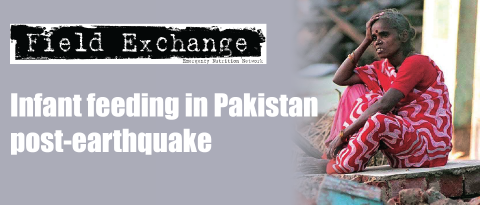New quality assurance method for humanitarian projects
Summary of meeting1
On the 15th of December 2005, the Groupe URD and Oxford Brookes University launched the English version of the Quality COMPAS in Oxford, the result of more than five years of field and theoretical research (Quality Project, Groupe URD, 1999-2004). About 40 people from a wide range of institutions (including OXFAM, MSF, ALNAP, Christian Aid, HAP-I, Sphere, Medair, ENN, World Vision, RedR, Irish MFA, Cranfield University) participated in the presentation of this method and discussed key concerns about quality for the humanitarian sector.
The Quality COMPAS is the first quality assurance method specifically designed for the quality management of humanitarian projects. The main innovation proposed by the Quality COMPAS is a shift from quality control (e.g. post evaluation and verification of compliance to standards) to quality assurance (prevention by the management of critical points during the project cycle). It is built around a unique comprehensive quality reference system, called the COMPAS Rose (see diagram). Affected populations and their environment are at the heart of this quality reference system. It is composed of twelve criteria that define the quality of a humanitarian project, which take into account and go beyond the OECD/DAC criteria1. For example, it includes notions such as 'the project respects the population', 'the project is flexible', 'the organisation uses lessons learnt from experience', etc.
The continuous improvement of Quality and the concept of 'quality by the question', which are principles on which the Quality COMPAS is based, seems to be relevant for the humanitarian sector. This means that there are no universal standards nor best practice ('one size fits all' does not work) but a need to contextualise each humanitarian project regarding the specific characteristics of the population, their needs and their capacities, the institutional mandate, etc. What might be good somewhere might be ineffective, if not dangerous, somewhere else.
According to many participants in the Oxford conference, the COMPAS Rose has a huge potential to refocus on the main 'raison d'être' of humanitarian agencies; the service provided to affected populations. It also enables actors to evaluate the project by offering a palette of quality indicators linked with the twelve quality criteria and offers a common reference to both managers and evaluators.
A quality cultural revolution in the humanitarian sector
Finally, the participants were very interested in the discussion around the 'quality cultural revolution' that the humanitarian sector is facing. Quality is not just a question of a tool. there are several issues at stake for the future of quality in humanitarian aid, involving technical, ethical and managerial challenges.
The technical challenge comes from the evolution of the humanitarian sector. The 'hand craft' age of humanitarian action - where simple processes were led by very few people - is in the past. Nowadays, humanitarian projects are highly complex processes (many actors, several sectors of intervention, etc) and due to this complexity, there is a need to generate trust through quality approaches.
The ethical challenge is linked with the fact that in a regulated market, there is an obligation of quality, since an unsatisfied client has the power of choice. This is not the case in the humanitarian sector where beneficiaries have no power of choice (little information, limited comparison and scant competition). From the outset and the statement of intent to act, there should be an ethical obligation of quality for humanitarian actors.
Last but not least, the managerial and strategic challenge. The quality approach should be adopted as a management method, from the top-level to the field-level (trans-hierarchical) and for every person involved in a project (cross-sectorial). This means that decisions about quality should be taken, monitored and stimulated by the 'top-management' of an institution.

Next steps
The Quality COMPAS is now entering upon a new period with two main developments:
- Development of a software to manage the information linked with quality: the Dynamic Quality COMPAS. This software will allow the real time construction of the project' memory through the recording, step-by-step, of all key elements of the project. It will facilitate not only project design but also the monitoring and reporting of tasks.
- Development of training material (based on field tests and pilot utilisation) and further research: the CAPE Quality. The main out-put of this project will be the production of training material, documentation and relevant information to allow humanitarian actors to put in place systematic and explicit quality assurance systems within their organisation.
Invitation to participate
To join the ongoing NGOs' consultation of the Dynamic COMPAS or to become one of the pilot users of this software, contact: Karla Levy, Dynamic COMPAS project coordinator klevy@urd.org tel: +33 (0)1 42 28 14 12
Groupe URD are also looking for participants in the new CAPE Quality programme. This will include training in the Quality Assurance method using Quality COMPAS, to become a pilot user of the Quality COMPAS. Step-by-step support in setting up the method within your institution will be provided, which will also serve to improve know-how and knowledge regarding quality in the humanitarian sector. Interested agencies should contact Véronique de Geoffroy, CAPE Quality project coordinator, email:vdegeoffroy@urd.org, tel:+33 (0)4 75 28 29 35
The Quality COMPAS is available for consultation on-line, see http://www.projetqualite.org/compas/outil.
To order the COMPAS kit (CD-ROM, manual and Compas Board), email the Groupe URD team at: compasqualite@urd.org
1Organisation for Economic Cooperation and Development/Development Cooperation Directorate. www.oecd.org/dac 'Guidance for evaluating Humanitarian Assistance in Complex Emergencies', OECD, DAC, 1999, Paris. See other quality and accountablity initiatives for the humanitarian sector at http://www.alnap.org/quality.html
Imported from FEX website


